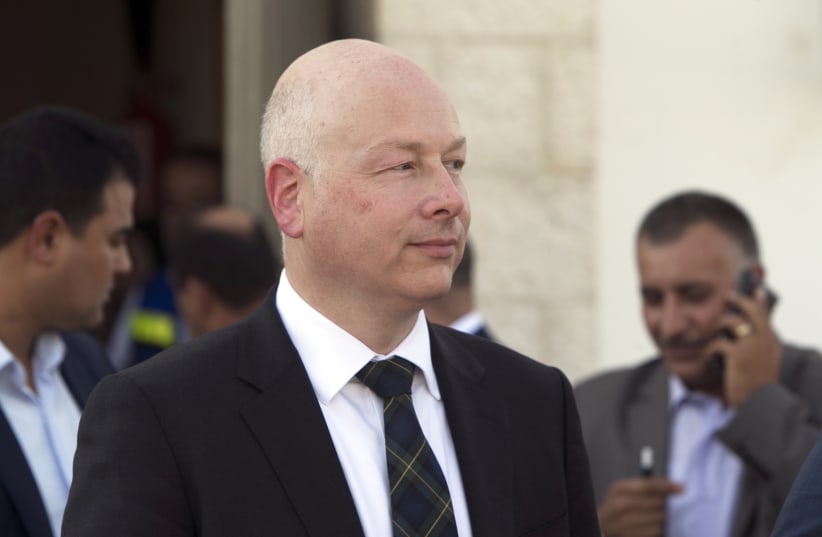Then, when Shtayyeh accused the US of declaring "financial war" on the Palestinians, in reference to the fact that the Trump administration slashed hundreds of millions of dollars in aid, Greenblatt responded, "This is U.S. taxpayer money – it goes to our allies & those that will work with us for positive change. Palestinian leaders chose to end that relationship – we hope they will work with us in the coming months for a better future for all."PM Shtayyeh, starting a new job by condemning a plan you haven’t seen is unfair to Palestinians. You have an obligation to first look at an opportunity before you dismiss it. The PA can continue to push us away, but that will do nothing to improve the lives of the Palestinians.
— Jason D. Greenblatt (@jdgreenblatt45) April 17, 2019
Shtayyeh tweeted back in kind, asserting that "Any Political initiative that does not call for ending Israeli occupation and establishing an independent and sovereign Palestinian State with Jerusalem as its capital on the borders of 1967 with settling the refugees cause is not acceptable to the Palestinians."As of this writing, Greenblatt has the last word: "Basically, you’re saying: give us the deal we demand, or no deal. That’s consistent with Palestinian prior attempts. How has that worked out for Palestinians? Do you want to lead your people to opportunity & prosperity or just keep saying the same tired lines over & over again?"A "financial war?" This is U.S. taxpayer money – it goes to our allies & those that will work with us for positive change. Palestinian leaders chose to end that relationship – we hope they will work with us in the coming months for a better future for all. https://t.co/5NJkdsf387
— Jason D. Greenblatt (@jdgreenblatt45) April 18, 2019
Basically, you’re saying: give us the deal we demand, or no deal. That’s consistent with Palestinian prior attempts. How has that worked out for Palestinians? Do you want to lead your people to opportunity & prosperity or just keep saying the same tired lines over & over again? https://t.co/CBugvPDCkD
— Jason D. Greenblatt (@jdgreenblatt45) April 18, 2019
